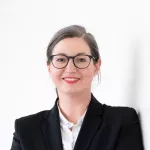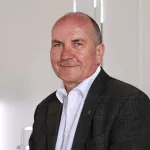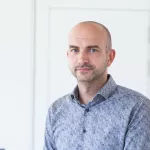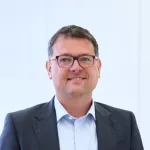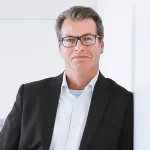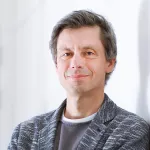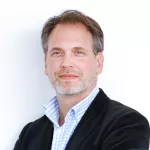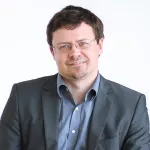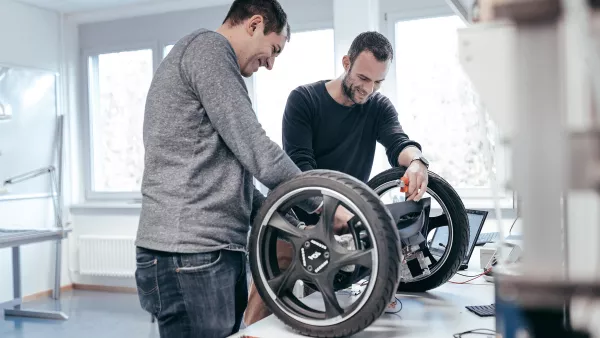At a glance
Dates
All events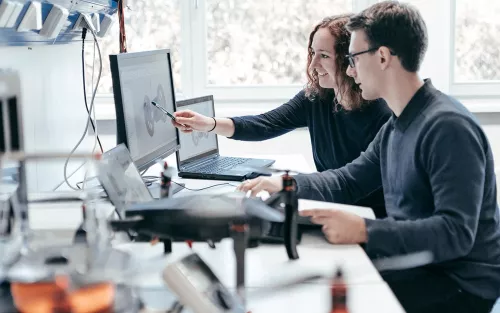
Technology of the future, products of tomorrow
Germany's successful economy, and especially its successful industry, is based on the development and production of a wide variety of innovative and very good products. Their development is an extremely dynamic process involving many partners. The basis of success is creative, capable, competent and communicative development engineers.
Development engineers shape the technological future of our society and have a decisive influence on its sustainability. A superior and comprehensive knowledge of product development (development methodology, simulation, lightweight construction, materials, production,...) is essential. This degree program focuses on teaching these overarching product development competencies for tomorrow's products.

Design and create products
You want to develop innovative products. Technology fascinates you. Do you like working in a team and enjoy trying things out and discovering new ways of doing things? We feel the same way. We are a motivated team of professors with practical experience and well-trained laboratory engineers and look forward to accompanying you in developing your comprehensive product development skills.
We teach the comprehensive fundamentals of product development (development methodology, simulation, lightweight design, materials, production,...) in a pleasant, personal atmosphere. In challenging projects (including in cooperation with research projects or companies) you will then break new innovative ground in product development.
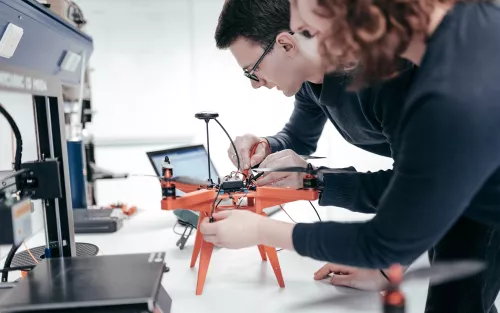
Profession and prospects
Product development is the core of successful companies. This degree program offers dedicated graduates of bachelor's degree programs and graduate engineers from the field the opportunity to actively shape the future of companies. After graduating with a master's degree, all paths are open to becoming a project or department manager in leading industrial companies, as well as for a university career.
Successful industrial companies thrive on continuously developing, producing and launching highly innovative and extremely robust products. To do this, they need excellently trained engineers. The goal of the master's program is to expand and deepen skills in the development of innovative products through a well-designed curriculum. Upon successful completion of the program, you will be awarded the title of Master of Science (M.Sc.), giving you the opportunity to work directly in industry as a responsible engineer or to begin a doctorate.
Downloads
- Alle Infos kompakt auf einen Blick.
- §37 der Studien- und Prüfungsordnung für die Masterstudiengänge - Fassung vom 30. März 2023
- Ältere Modulhandbücher sind im QM Portal abgelegt.
- Studien- und Prüfungsordnung für die Masterstudiengänge mit Allgemeinem Teil - Diese Änderungssatzung tritt zum WiSe 2023/24 in Kraft
- Satzung der Hochschule Ravensburg-Weingarten über die Regelungen zum Hochschulzulassungs- und –auswahlverfahren für Masterstudiengänge vom 3. April 2025
Further information
Curriculum

STUDY & COURSE CONTENT
The Master's program in Product Development in Mechanical Engineering is designed for three semesters.
The aim of the program is to provide you with very comprehensive and very broadly based knowledge and skills in product development with a focus on
- Development methods and processes
- Sustainable product life cycle
- Materials and lightweight design
- Digitalization
- Mechatronics
Aspects of scientific work are strongly encouraged. It is very important to us that you acquire and also test development skills in a lot of project-related work in small teams:
- 1-year project work in student teams
- many small projects in the lectures
- Master thesis
The study program is structured in the following modules:
Methods and processes
- Methods, processes and tools of product development
- Design methodology
Computational Methods in Engineering
- Mathematical / numerical solution methods for physical problems
Linear and non-linear finite element analysis
- Advanced engineering mechanics
- Principles of linear and nonlinear FEM using examples
- Practical applications with commercial FEM software
Materials and lightweight design
- Applied materials technology
- Composites and composite materials
- Lightweight design
Digital Engineering
- Digital product life cycle
- Multi-body simulation
- Object-oriented modeling/programming
- Dimensional Analysis
Mechatronics
- Control Engineering
- Actuators and sensors
- Continuous Systems
- Mechatronics Internship
Sustainable product life cycle
- Economic, ecological and social aspects
- Sustainable product life cycle
Scientific project
- One-year development project
- Reading Club (scientific work)
Elective course
- Addition to the curriculum for individual competence development
Master's thesis
- Independent preparation of a scientific thesis
Admission
Application for the summer and winter semester
The Master's degree program in Product Development in Mechanical Engineering offers
- study places for the winter semester and the summer semester.
The application deadlines are:
- July 15: Application deadline for the winter semester
- January 15: Application deadline for the summer semester
The deadlines are cut-off dates, which means that your application documents must be received digitally by this date in order to be considered for the allocation of study places.
Start of lectures
- Beginning of October for the winter semester
- mid-March for the summer semester
the exact date can be found in the menu item Dates.
to the online application
Who gets a study place?
Admission requirements are a successfully completed degree in mechanical engineering, automotive engineering or related subjects with an overall grade of at least 2.8.
Bachelor degree with 180ECTS
The Master's degree can only be awarded if 300 ECTS points have been achieved, including the previous course of study. For applicants with a Bachelor's degree with 180ECTS, the head of the program can define an appropriate preliminary semester in consultation with the applicant.
Further information on the application and the allocation of study places can be found in the Admissions Office.
SEMESTER FEE
Each semester, a semester fee is due for all students upon enrollment or re-registration. This fee is charged at a similar rate by all universities in Germany.
Composition and amount of the fee
FEES FOR INTERNATIONAL STUDENTS AND FOR SECOND DEGREE PROGRAMS
In Baden-Württemberg, there has been a tuition fee for international students (non-EU citizens) and a second-study fee since the winter semester 2017/2018. Thus, in some cases, a tuition fee must be paid in addition to the semester fee.
Prior to enrollment, applicants from non-EU countries or applicants for a second degree will receive a form to assess whether a tuition fee obligation actually exists.
The amounts and detailed information can be found under Finances
News
News of this degree program
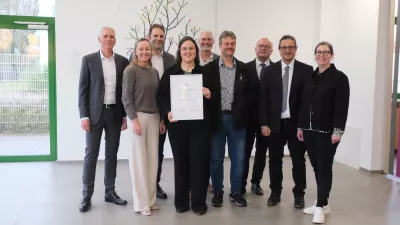
Award ceremony
TOX Applied Engineering Award for Master's thesis in mechanical engineering
Felicia Wieland receives the TOX® Applied Engineering Award for her practical master's thesis on the traction aid winch for special forestry machinery. The award ceremony took place on March 26, 2025 in Weingarten.
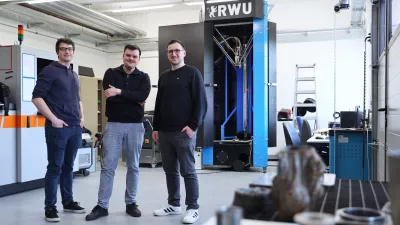
Press release
Steel parts from the printer
Three RWU Master's graduates have built a metal 3D printer. They have now gained plenty of experience with it and are looking for partners.
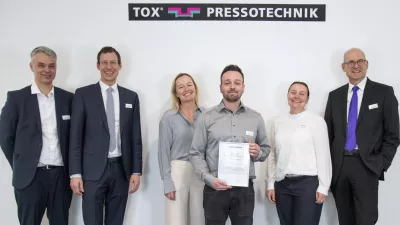
TOX Award 2022
Innovative master thesis awarded
Lorenz Heinz received the TOX-Applied Engineering Award for his master thesis "Systematic investigation of cooling structures in water-cooled electrical machines".
Contact & People
Dean of Studies & Academic Advising
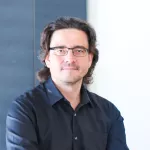
Secretariat
Admission Office
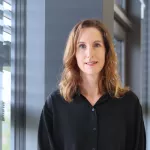
Examination Office
Professors
